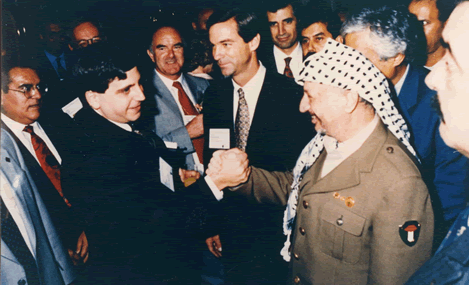Partnership for Peace

The 1994 World Economic Development Congress in Madrid, Spain was one of the high water marks for the Middle East peace process. My job involved helping organize the conference discussions, as well as inviting U.S. and other business leaders to attend to share ideas about how to bring peace and prosperity to the strife-torn region. I came away from the conference convinced, however, that deeply-felt hostilities will not subside until those involved have far greater economic incentives for peace than they do for war. At present, the operative economic incentives in the Middle East are mainly directed towards violence. Those incentives include Israel’s heavily militarized economy, as well as the financing provided to the armed Palestinian intifada, and to suicide bombers and their families. For that reason, I have proposed that Israel and the Palestinian Authority jointly establish a new Tourism Peace Tax (ten percent or more) with the proceeds paid directly to individual Palestinians and Israelis, split in some equitable fashion that best reduces poverty and extremism. This strategy is designed to give all residents of the region, particularly impoverished Palestinians, a greater financial stake in peace than in continuing the conflict. The Middle East could become a very different place over time if Palestinians make money whenever a tourist arrives in Tel Aviv, Jerusalem or Bethlehem. This proposal won’t solve the conflict. But the hundreds of millions of dollars generated each year would significantly boost per capita income levels and could help lessen the sense of loss many Palestinians feel regarding the very existence of the state of Israel. More immediate and tangible rewards for peace would also help reduce hostilities and promote settlement of the other remaining disagreements between the parties. These payments would be suspended to any adult who commits crimes against others. They would also be suspended to the parents of any children who commit such crimes. I call this plan the “Partnership for Peace” and continue to hope the idea, or something similar, will be seriously considered. Hal Plotkin Summer 1995


